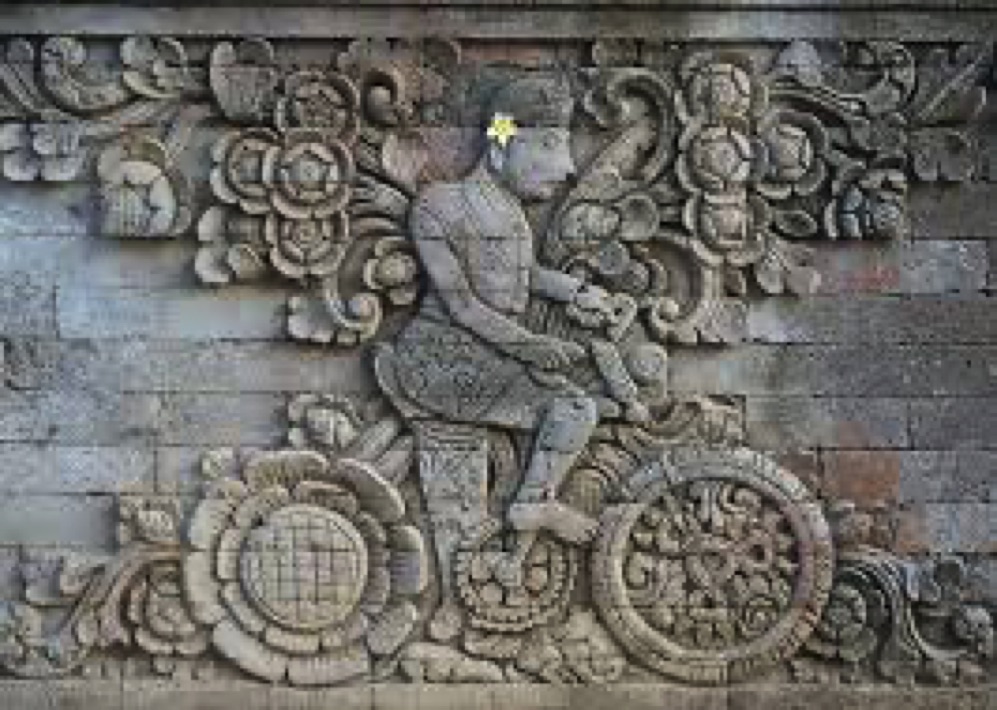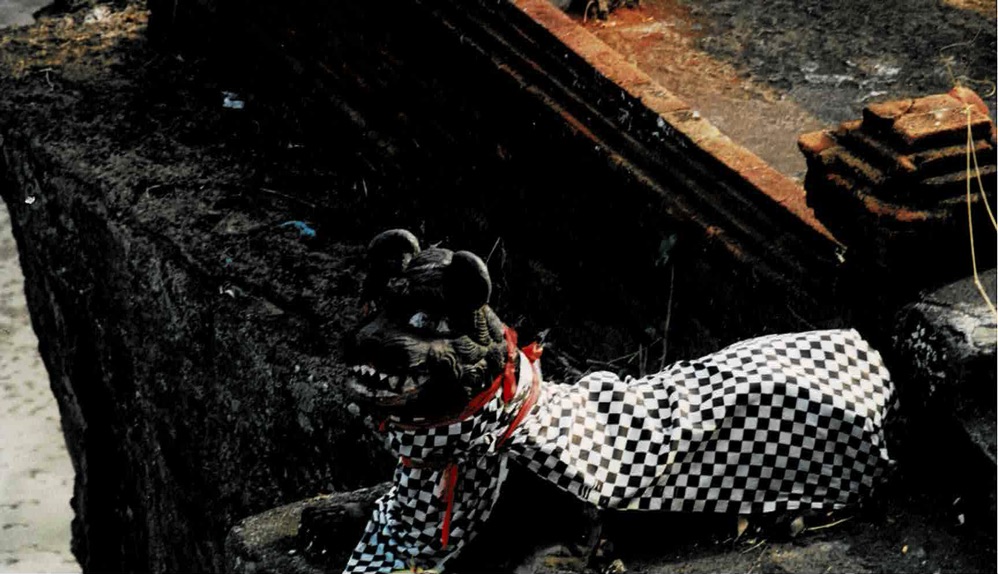Important Bali Travel Info
Everything you need to know to have a great trip
Passports and Visas
U.S. citizens need a passport to travel to Bali. When you arrive in Bali you will be required to purchase a Visa On Arrival (VOA). This is a simple and fast process. It will cost about $35, and you can pay with your credit card. If you prefer, an ATM is nearby the Visa On Arrival booth. (There's a complicated way to buy your Visa on Arrival before you get to Bali, but there is no benefit to going through all that trouble).
Inoculations
You are not required to get any shots to travel to Bali. Here is information on optional shots you may want -- it's up to you.
Money
The currency of Bali is the Indonesian rupiah (abbreviated as Rp). Prices are often written like this:
Rp1.400.000
Note that in this example that would be 1,400,000 rupiah -- in Bali they often use periods instead of commas to break up long numbers.
At this writing:
$1 = about Rp 14,450.
Rp10,000 = about $0.69.
Rp100,000 = about $6.90.
(So that Rp1.400.000 would be about $96.88).
American credit cards are usually accepted only at large hotels, fancy stores, and top restaurants, so you definitely need to carry Indonesian rupiah for on-the-road purchases, shopping, roadside restaurants, and small stores.
My Own Money Plan for Bali
Hey, everyone does this a bit differently, but here's my own money plan for Bali.
My U.S. bank wants to hit me with a significant fee every time I use my card overseas -- check with your bank -- so I will bring enough U.S. cash with me for the trip in $100 bills. (For mysterious reasons, if you are exchanging U.S. $100 bills for rupiah, you get a better exchange rate than if you use U.S. $20 bills. Bills smaller than twenties are difficult or impossible to exchange in Bali. Go figure!)
At the Bali airport I will use my debit card at the ATM (at fair exchange rates) to get just enough rupiah to cover my first day's expenses. Here are some wise tips on using your ATM card to get cash in Bali. Note that Bali ATMs (or your home bank) may limit how much you can withdraw with each transaction, and how much you can withdraw per day.
Some banks offer exchange desks inside the airport. You can use them instead of the ATM, but either way you may want to stop at the desk and ask for some rupiah in small denominations to tip your cab driver. (More on that below).
I'll leave the airport and take a taxi or shuttle to Ubud -- the town where we start our trip. When I get to Ubud I will exchange that U.S. cash I brought with me for rupiah. You should be sure to stock up on rupiah in Ubud -- there are few places to exchange money once we leave town, and if you want to stop for a Coke in the middle of nowhere they will not take your Amex card!
There are money exchange services everywhere on the main drag in Ubud. These places all post the exchange rate they are offering on a large sign outside the shop. Be sure to look for the words "No Commission". You may find some minor variation in the rate, but mostly they are similar at each place. (Last time I carefully hunted down the best rate all over town and then pounced... only to realize that I had saved about 15 cents on the whole transaction!)
You want to use an exchange service on the main road -- not the one located at the end of a dark dead-end street!
We end our trip in Ubud too, so if you need to get extra rupiah for last-minute shopping you can do that then.
Getting From the Bali Airport to Our First Hotel
There are a couple ways to do this -- your choice!
Here is the hotel where we are staying our first night:
Komaneka at Rasa Sayang
Jl. Monkey Forest, Ubud, Kecamatan Ubud, Kabupaten Gianyar, Bali 80571, Indonesia
(I like to print this out on a piece of paper to show the shuttle driver -- that way I don't have to worry about crazy stuff like my phone running out of power right at the moment I need to show them where we're going!)
NOTE: There are several hotels by the Komaneka company near each other. Be sure you are at the right one -- the Komaneka Rasa Sayang.
If You Are Traveling With Your Own Bike
We recommend you use these folks to book your transportation to the hotel in advance online:
Suntransfers
Note that the prices on the Suntransfers website are quoted in euros. The prices we show here in dollars are close estimates. You can pay online with your American credit card.
Be SURE to request a mini van or larger (depending on how many people are in your group) so there will be room for your bikes. This will cost about $40 for the vehicle (NOT per person). No extra charge for luggage.
If You Are Renting a Bike in Bali
If you are renting a bike in Bali you can still use these folks
Suntransfers
but you won't need an entire mini van! You can request a regular car for about $20. Your rental bike will be waiting at our first hotel for you.
OR...
You can go to the official taxi counter inside the airport. The fare will be about $25 total (not per person).
Taxi drivers are usually not tipped in Bali, but it is nice to round up your fare, so if the total is 375,000 rupiah (the Indonesian currency) it's nice to round it up to 400,000. (That's about $2 extra!)
Language
The local languages are Balinese and Indonesian, but Bali thrives on international travel, and most people who welcome visitors (restaurants, shop owners, hotel staff) speak English as well. Our staff speaks Balinese, Indonesian, and English.
Continued below...

Weather
Lovely and hot every day, with very little chance of rain.
Tipping
Tipping is not expected in Bali. Having said that, most service industry workers earn very little, so a small tip is always appreciated. Do not tip any hotel maids or luggage handlers -- we will take care of that for you.
Water
You should NEVER drink the tap water in Bali. This also means no brushing your teeth with tap water. Ice in major hotels and restaurants is made from purified water -- ask if you aren't sure.
This isn't snobbery -- throughout much of Southeast Asia tap water is not intended for drinking -- it is for washing and farming. Everyone in Bali drinks bottled water -- even poor people. Small restaurants may boil their water first instead of using bottled water, and that's fine.
Bottled water is readily available at every store and roadside stand and it is cheap. We will always have a free supply of cold bottled water in our support truck -- just ask or help yourself.
We are staying in nice hotels and some of them may have water purification systems that allow you to drink tap water -- ask if you aren't sure.
Clothing
Bali is very casual -- no need for formal attire. We will be eating some nice dinners together -- casual clothing is still fine, but maybe not that T-shirt that you used to clean the grease off of your bike chain.
While you are pedaling shorts and short-sleeve or sleeveless jerseys are fine.
When we visit most temples, EVERYONE (men and women) must cover up bare shoulders and legs. That means that you will need a sarong or wrap, which we will provide you for FREE. You can stuff this in your jersey pocket, or put it in our support van so you can grab it when you need it. This is MANDATORY. (Yes, I'm looking at you, macho guy. All men must wear a wrap too to cover their legs, and you'll fit in just fine.)
Haggling
Bargaining over prices is expected when shopping, so have at it while still showing friendly respect for the locals. Note that you usually can't bargain in restaurants, or for small items. (So if a Coke is 75 cents at a roadside stand, please don't try to work your way down to 50 cents).
Toilets
Let us cut right to the chase, shall we? In most of Bali you'll find American-style toilets. But in smaller areas you may still find squat toilets. Here's some excellent straight talk on how to use squat toilets. (Read this now before you need it!)
Phones and Internet
Most of our hotels will have free wifi. (Maybe not as fast as at home, but you'll be OK for email and modest web surfing -- probably not great for streaming a movie.)
For phones, our local Bali crew tells us that it is not worth it to buy a new SIM card for your phone in Bali.
Instead, contact your cellphone carrier BEFORE you leave home. I was able to purchase an inexpensive overseas travel plan that covers the period when I'll be in Bali. (Don't forget to include the time when you will be in transit! If you need to use your phone while you change planes in Singapore, you don't want to suddenly realize that your international calling plan doesn't start yet for one more day!)
We recommend that before you leave home you install the free WhatsApp program on your phone if you don't already have it. You can get it for free from the Apple app store or Google Play store. It allows you to send text messages and make phone calls to folks in Bali and back in the U.S. for free... provided that they also have WhatsApp. (In Bali WhatsApp is very popular -- businesses will often list their WhatsApp contact info.)
We will ALSO use WhatsApp to send you important information in the middle of the trip. ("Departure time tomorrow has changed from 8:00 a.m. to 8:30 a.m.")
If all this seems confusing just download WhatsApp and we will do the rest with you in Bali. Happy to help!
If you decide that after the trip you no longer want WhatsApp on your phone it is easy to remove.


